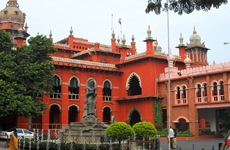
The division bench said this while setting aside a single judge order passed earlier in the case of a cane officer of Perambalur Cooperative Sugar Mills. The officer had demanded a bribe from a junior officer for a transfer.
When the bribe thing came to light the cane officer was suspended but his suspension was revoked on the ground that he was not a public servant and therefore could not be covered under the PC Act.
Advocate general A L Somayaji told the court as cooperative sugar mills do public duty and, therefore, their employees are public servants. Chiming with the advocate general, the court said; “Any person who is an office-bearer or an employee of educational, scientific, social, cultural or other institutions, whatever manner would be, receiving or having received any financial assistance from the central or any state government, or local or other public authority, will come under the definition of ‘public servant”.
Hailing the High court opinion, some leading cooperators in Chennai have said mismanagement and graft being synonymous with the cooperative sector it was time the PC Act covered this sector. This will go a long way in curbing the rampant corruption as well as refurbishing the image of the cooperative movement, they underlined.
There are thousands of people employed in the cooperative sector in Tamil Nadu.




